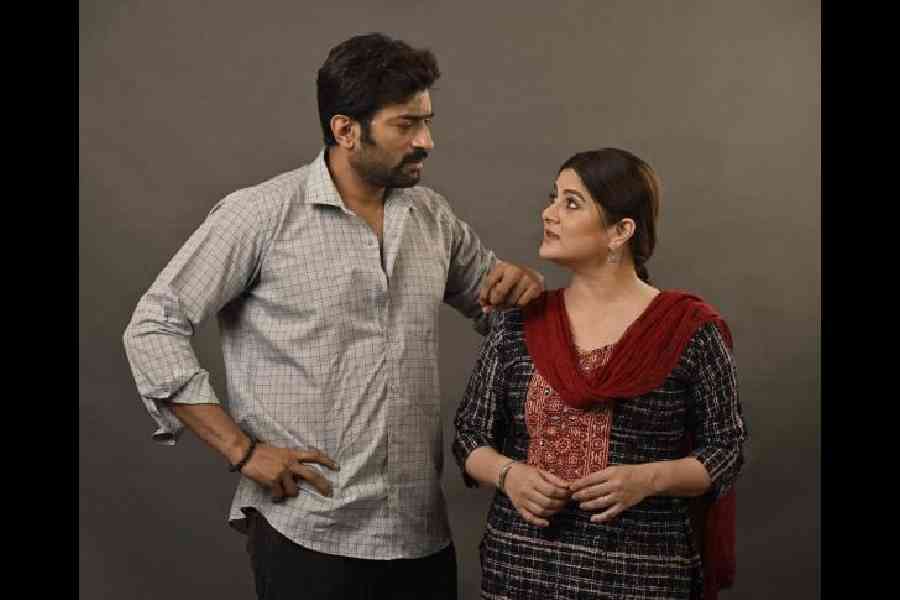The first thing Jeetu Kamal tells me — somewhere between a breath and a laugh — is that Erao Manush — The Search Within isn’t the sort of film you “casually walk into on a Monday morning”. It’s a psychological labyrinth, a story set inside a mental asylum, and a world where the lines between reality, trauma and absolute madness bleed into one another. “You can’t fake your way through a film like this,” he says. “It demands a version of truth you’ve probably never accessed.”
Only one schedule of shooting is complete, and Jeetu admits the journey ahead is as intense as the scenes already filmed. “We’ve just scratched the surface,” he says. “The next schedules are going to be even more demanding. But if everything goes according to plan, we should be able to bring it to theatres by January. Tentatively, that’s what we’re aiming for.”
Jeetu plays not one but three shades of the same character— each version a different emotional temperature, a different moral weight. “I had to split myself into three people,” he tells me. “One part of him lives in fear, one part manipulates, and another part seeks liberation. You can’t play that with vanity; you have to strip everything down.”
But the film isn’t simply a deep dive into fractured psychology. There’s also a dark undercurrent of organ trafficking, layered beneath the asylum’s sterile corridors. “It’s not a plot device. It’s a shadow over the film,” Jeetu explains. “The asylum becomes a metaphor for how easily vulnerable people are exploited. It’s unsettling because it’s uncomfortably close to real life.”
The story and concept come from Balasai Lahiri and Saiprakash Lahiri, and Jeetu believes their personal engagement with the subject shaped the film’s core. “I know they also work around this cause,” he says. “So maybe that’s what sowed the seed of this story. It doesn’t feel imagined; it feels informed.”
There’s also a shift in Jeetu’s own choices since Babushona. He says it almost offhandedly, but the weight is unmistakable: “I’ve decided to do less work, but meaningful work after Babushona. I don’t want to run behind quantity anymore.”
What grounds him — he says — is the people he works with. His camaraderie with Srabanti is one part history, one part genuine respect. “We’re friends, yes,” he says, “but on set she’s a co-star first. There’s a different kind of dedication when you work with someone who’s been part of your journey from early on. It’s the same with Subhashree too. There’s comfort, but also this unspoken thing where you are very inspired because these actors are very dedicated to their craft, no matter what. Srabanti can stay on set for hours and she is always on time.”
These are heavy scripts — emotionally dense, psychologically demanding — and Jeetu admits that meaningful work of this kind requires an equally meaningful life outside the set. “When I’m not working, I meditate, I manifest, I work out, I do yoga… all of that keeps me centred,” he says. “You can’t carry characters like these around with you, so I’ve learnt to create space in my mind.” He laughs softly before adding something that feels both light and revealing: “And I’m very happy being single. I absolutely love living on my own. I enjoy my own company now in a way I probably didn’t earlier.” It’s a statement that mirrors the kind of work he’s choosing — intentional, grounded, and aligned with who he is becoming rather than who he used to be.











